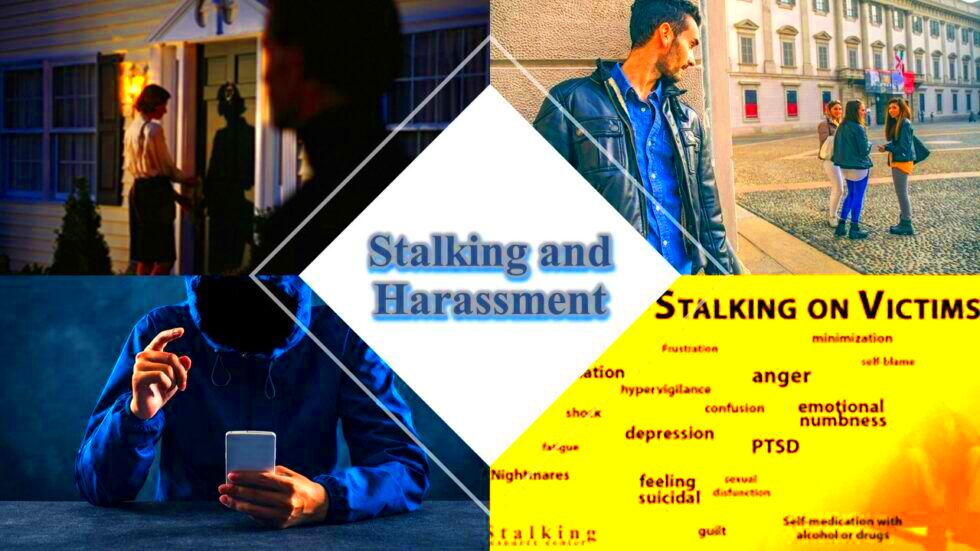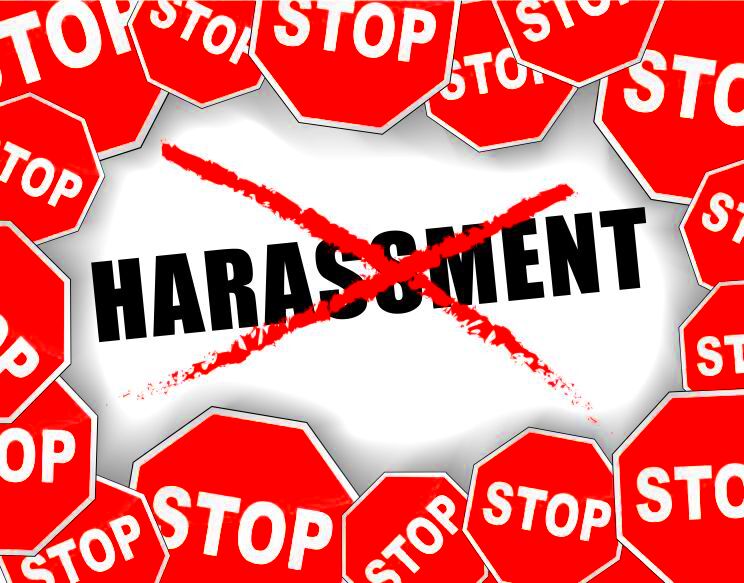Arizona’s Stalking and Harassment Prevention Laws Explained
Stalking is a serious issue that affects many individuals in Arizona. It involves a pattern of behavior that causes a person to feel fear or distress. In Arizona, the law takes stalking seriously, providing various protections for victims. Stalking is not just one-time incidents; it’s the repeated behavior that creates a threat to someone’s safety. Understanding what constitutes stalking can help individuals recognize these behaviors and seek help.
According to Arizona law, stalking occurs when a person intentionally and repeatedly engages in conduct that is directed at another person and causes that person to fear for their safety. Here are some key points:
- Stalking can include following someone, making threats, or sending unwanted messages.
- It can happen through various means, such as in person, by phone, or online.
- The victim’s feelings of fear or distress are crucial in determining whether stalking has occurred.
If you or someone you know is experiencing stalking, it’s essential to understand your rights and options for seeking help and protection.
Defining Harassment under Arizona Law

Harassment, like stalking, is also taken very seriously under Arizona law. While both terms are often used interchangeably, they have distinct legal definitions. Harassment involves unwanted and repeated contact that causes distress to another person. It doesn’t necessarily require the same level of fear that stalking does but focuses more on the impact of the behavior on the victim.
Here are some important aspects of harassment under Arizona law:
- Harassment can include verbal abuse, persistent unwanted communication, or other forms of intimidation.
- The actions must be intended to harass, annoy, or alarm the victim.
- The victim must demonstrate that the behavior significantly disrupted their daily life.
Understanding the nuances between stalking and harassment can help victims seek appropriate legal protection and ensure their safety.
Legal Consequences of Stalking

In Arizona, stalking is considered a serious crime with severe legal consequences. If someone is found guilty of stalking, they can face a range of penalties that may vary based on the circumstances of the case. Here’s what you need to know about the legal ramifications:
- Stalking is generally classified as a Class 1 misdemeanor, but it can escalate to a Class 4 felony if certain aggravating factors are present.
- Penalties may include jail time, fines, and mandatory counseling or treatment.
- A conviction can also lead to a permanent criminal record, impacting future employment opportunities.
Victims of stalking may also seek protective orders, which can legally prohibit the stalker from contacting or coming near them. Violating these orders can lead to additional criminal charges.
It’s crucial for anyone facing stalking to understand their legal rights and seek assistance from law enforcement or legal professionals to navigate the complexities of the law.
Legal Consequences of Harassment
Harassment is not just a bothersome behavior; it has serious legal consequences in Arizona. When someone engages in harassing behavior, they can face significant repercussions under the law. Understanding these consequences can empower victims and encourage them to take action.
In Arizona, harassment can be classified as a misdemeanor or a felony, depending on the nature and severity of the actions. Here are some key points to consider:
- Misdemeanor vs. Felony: Harassment is typically a Class 1 misdemeanor, but it may be upgraded to a Class 6 felony if there are prior convictions or if the harassment involves threats of violence.
- Potential Penalties: Penalties can include:
- Fines up to $2,500 for misdemeanors and higher for felonies.
- Jail time ranging from a few days to several years, depending on the charge.
- Mandatory counseling or anger management programs.
- Impact on Employment: A conviction can lead to a permanent criminal record, which can severely impact employment opportunities and professional licenses.
Victims of harassment are encouraged to document incidents and seek legal advice to understand their options. Taking action not only protects them but also helps hold perpetrators accountable for their behavior.
Protective Orders and Their Importance
Protective orders, also known as restraining orders, are crucial tools for individuals facing harassment or stalking in Arizona. These legal orders can provide immediate protection and peace of mind to victims, allowing them to reclaim their safety.
Here’s why protective orders are so important:
- Immediate Relief: A protective order can prohibit the harasser from contacting the victim or coming within a certain distance, providing immediate safety.
- Legal Standing: Having a protective order legally recognizes the harassment or stalking, which can strengthen the victim’s case if further legal action is needed.
- Consequences for Violation: If the harasser violates the order, they can face criminal charges, which adds an additional layer of protection for the victim.
Obtaining a protective order typically involves filing a petition with the court. Victims can also seek assistance from legal professionals or local organizations that specialize in helping victims of harassment and stalking. Remember, you have the right to feel safe and secure in your environment.
How to Report Stalking or Harassment
Reporting stalking or harassment is an essential step in protecting yourself and others. If you or someone you know is experiencing these issues, it’s crucial to take action promptly. Here’s a straightforward guide on how to report such incidents in Arizona.
Follow these steps to report stalking or harassment:
- Document Everything: Keep a detailed record of every incident. This can include dates, times, locations, and descriptions of the behavior. Save any messages, emails, or voicemails as evidence.
- Contact Law Enforcement: If you feel threatened or unsafe, do not hesitate to call 911 or your local police department. They can help you understand your options and provide immediate assistance.
- File a Report: When speaking with law enforcement, provide all your documentation. This will help them understand the situation better and may lead to criminal charges against the harasser.
- Seek Support: Consider reaching out to local organizations that specialize in supporting victims of harassment and stalking. They can provide resources and legal advice.
- Consider a Protective Order: If you are in immediate danger, inquire about obtaining a protective order to safeguard yourself from further harassment.
Remember, reporting these behaviors is not just about seeking justice; it’s about protecting yourself and potentially preventing future incidents. Don’t hesitate to take the necessary steps to ensure your safety.
Defenses Against Stalking and Harassment Charges
If you find yourself facing stalking or harassment charges in Arizona, it’s important to know that there are potential defenses available. Understanding these defenses can help protect your rights and navigate the legal system more effectively.
Here are some common defenses that might be applicable:
- Lack of Intent: One of the primary defenses is showing that there was no intent to harass or stalk. If the behavior was misunderstood or misinterpreted, it can lead to a dismissal of charges.
- Freedom of Speech: In some cases, what may seem like harassment could fall under protected speech. If the communication was part of an ongoing dialogue or discourse, this defense might be relevant.
- Consent: If the accused and the alleged victim had a previous relationship where certain behaviors were consensual, this may serve as a defense. However, it’s crucial to establish the nature of that consent clearly.
- False Allegations: If you can demonstrate that the accusations are entirely false, this can be a strong defense. Gather evidence and witnesses that can corroborate your side of the story.
Consulting with a knowledgeable attorney can help you understand which defenses may be appropriate for your specific situation. Remember, everyone deserves a fair chance to defend themselves against allegations.
Frequently Asked Questions about Stalking and Harassment Laws
When it comes to stalking and harassment laws in Arizona, many individuals have common questions. Understanding the answers can help clarify your rights and options. Here are some frequently asked questions:
- What constitutes stalking in Arizona? Stalking involves a pattern of behavior directed at another person that causes them to feel fear for their safety.
- Is harassment the same as stalking? No, while both involve unwanted behavior, harassment typically focuses on annoying or alarming someone, whereas stalking involves a persistent pattern that creates fear.
- What are the penalties for stalking or harassment? Penalties can range from fines and jail time to mandatory counseling, depending on whether the charge is classified as a misdemeanor or a felony.
- Can I get a protective order? Yes, individuals experiencing stalking or harassment can seek a protective order from the court to prohibit contact from the harasser.
- What should I do if I’m being stalked or harassed? Document everything, report the behavior to law enforcement, and consider seeking a protective order.
Having accurate information can empower individuals to take the necessary steps to protect themselves and seek justice.
Conclusion on Stalking and Harassment Prevention in Arizona
In Arizona, stalking and harassment are serious issues that require attention and action. Understanding the laws surrounding these behaviors can help both victims and accused individuals navigate complex situations effectively. It’s crucial for victims to know their rights and available resources, while those facing charges must be aware of their defenses and legal options.
Preventing stalking and harassment starts with awareness and education. Here are some key takeaways:
- Know the Signs: Recognize what constitutes stalking and harassment to take action early.
- Document Incidents: Keep records of any troubling behavior to support your case if needed.
- Seek Help: Don’t hesitate to reach out to law enforcement or local organizations specializing in victim support.
- Understand Your Legal Rights: Familiarize yourself with the laws to protect yourself effectively.
By staying informed and proactive, individuals can work toward creating a safer environment for everyone in the community. Remember, you are not alone, and there are resources available to help you navigate these challenges.


